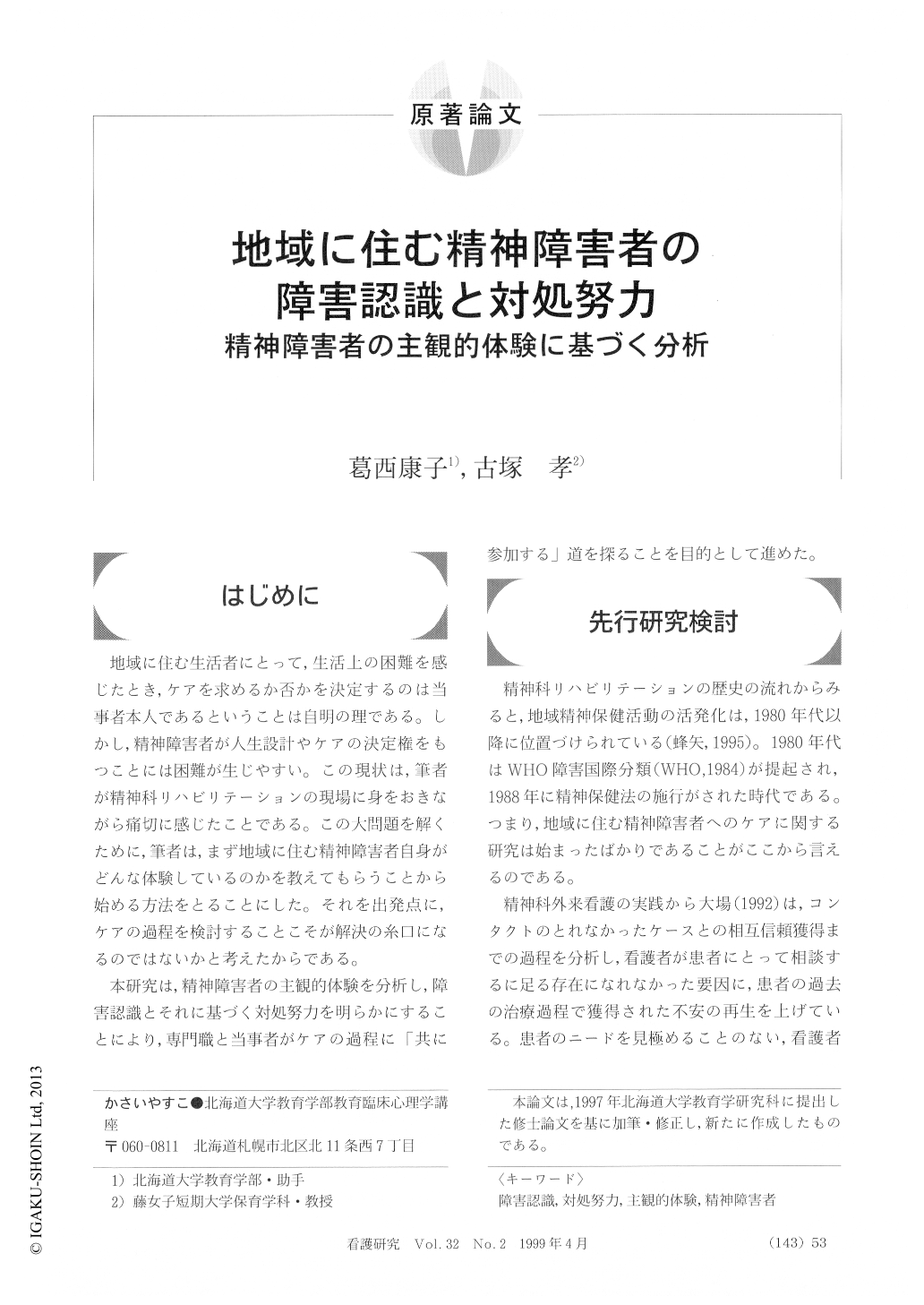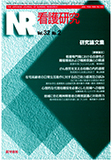Japanese
English
- 有料閲覧
- Abstract 文献概要
- 1ページ目 Look Inside
はじめに
地域に住む生活者にとって,生活上の困難を感じたとき,ケアを求めるか否かを決定するのは当事者本人であるということは自明の理である。しかし,精神障害者が人生設計やケアの決定権をもっことには困難が生じやすい。この現状は,筆者が精神科リハビリテーションの現場に身をおきながら痛切に感じたことである。この大問題を解くために,筆者は,まず地域に住む精神障害者自身がどんな体験しているのかを教えてもらうことから始ある方法をとることにした。それを出発点に,ケアの過程を検討することこそが解決の糸口になるのではないかと考えたからである。
本研究は,精神障害者の主観的体験を分析し,障害認識とそれに基づく対処努力を明らかにすることにより,専門職と当事者がケアの過程に「共に参加する」道を探ることを目的として進めた。
This article focuses on subjective experience of psychiatric outpatients. This study emphasizes how process outpatients were working with mental disease and disorder, and discuss what caring stuff can learn from these patients. Research data was collected by the informal interview and was used as narration. In result, subjective experience of psychiatric outpatients narrated their awareness of disorders and coping with efforts based on them. By the qualitative analysis, it is clarification that characteristic of five categories in awareness of disorders-〈relational awareness〉〈awareness of self-ability〉〈awareness of self worth〉〈awareness of society〉〈awareness of illness〉were revealed and brings coping with efforts. The subjective experience world has constructed on three contexts;
1. The experience of mental disease and disorder.
2. The internal experience of mental illness.
3. The social experience of mental illness.
To conclude, the care process is involvement in the structuring and/or restructuring of narration spun such subjective experience world of psychiatric outpatient.

Copyright © 1999, Igaku-Shoin Ltd. All rights reserved.


